Jan Carson's Blog, page 15
February 8, 2016
For Dr. Simpson
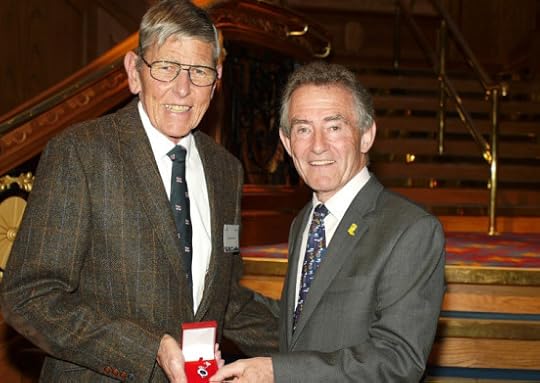
Between 1984 and 1991 I attended a small primary school on the edge of Ballymena. It was called Carniny, (the ‘n’s’ and ‘r’ rolled softly round the mouth like the tiny mountains they resembled. The ‘y’ pronounced like a homely ‘e’). It was one of the best things that ever happened to me though I probably didn’t realise this at the time.
From the outside my school didn’t seem particularly ostentatious. It was one of those squat, rectangular institutions popular in the 1970s which look like a series of over-sized matchboxes have been hastily tacked together. It featured a junior playground to the front, a senior playground to the rear and a playing field of ill-defined purpose which was unfortunately inclined so any team playing towards the staff car park almost always won. There was also a sandpit which passed for long jump pit, high jump pit, and burial plot for all our juvenile detritus, (matchbox cars, severed heads of Star Wars figurines, pennies and the half-chewed remains of bad packed lunch sandwiches). There were seven classrooms in total, an assembly hall which doubled up as cafeteria, concert hall and gymnasium and was more often than not covered with our poster paint and crepe paper masterpieces, (daffodils at Easter, cottonwool-bearded Santas for Christmas and, in the Autumn, various arrangements of leaves). I also recall the medical room where, once a year, we lined up in our vests to have our spines examined and squint past a wooden spoon at the alphabet receding on the opposite wall. I’m sure there was a staff room somewhere and a secretary’s office. I think the secretary was still using a typewriter back then. I think I remember the clicketty clack of it tip toeing down the corridors.

However, the best and holiest room in the school was reserved for music. It sat at the back of the school between the Primary six and seven classrooms. It contained ordinary chairs, little desks, music stands for our lessons and various percussion instruments for ticking, clicking and shaking along with the BBC music programme which we all tuned into once a week on the big wooden wireless. It was full of Dr. Simpson. Dr. Simpson was our headmaster. Which is to say Dr. Simpson was the king of Carniny Primary School. He was an exceptionally tall man, with shiny hair and the kind of face which is always just about to break into a deep, belly laugh. Dr. Simpson would not have been amiss in a Roald Dahl book for there was something of the BFG about him and he had that tweedy blazer, pipe-smoking look which sits so well with wise and kind men of a certain age. He smelled a little of pipe smoke but this was not an unpleasant smell. I still have a fondness for it and it is only now, some thirty two years later, that I am beginning to wonder whether every other four year old stored their reading words in an empty tobacco tin, or if this was something peculiar to Dr. Simpson’s kids.
Dr. Simpson was rarely in his office. Preferring, as all good kings do, the company of his subjects he would often walk up and down the corridors of his school, talking to his children, asking about our small sporting victories and little bits of news from home, knowing every single one of our hundred or so names, (even the special added on bits which distinguished each of the five Emma’s in my class from the other four: Emma Lee, Emma Dalton, Emma Shields, Emma White, Emma Lynn). On Friday afternoons his face would often appear at the door of a senior school classroom interrupting a serious maths lesson or the meticulous separating of verbs and adverbs with a smile and a very decent proposal, “would anyone in this class like to sing instead of doing maths?” Down would go our pencils, our set squares and rulers and we’d spend the rest of the afternoon in the music room, sitting on the desks -for wasn’t that ten times more fun than sitting on a regular chair?- while Dr. Simpson battered an old acoustic guitar and we sang endless rounds of ‘She’ll Be Coming Round The Mountain,” and “On Top Of Spaghetti All Covered In Cheese” and the rude version of “My Bonnie Lies Over The Ocean” with its smelly feet verse, which is just as hilarious now as it was in 1989. It didn’t matter if you could sing like an angel or, like me, you were relegated to playing the coconuts for “Little Donkey” in the Christmas concert, everyone loved singing with Dr. Simpson because we could see how important, how absolutely vital music was to him.

Dr. Simpson was evangelistic about music. Once a week he brought his record player into assembly and all of us, even the littlest four year olds, sat rapt and cross legged on the dusty, wooden floor while he told us the story behind Vivaldi’s Four Season’s and all about Beethoven making beautiful melodies despite his broken ears, and played Grieg’s “In the Hall of the Mountain King” which was suddenly so much more than dancing spoons in a yogurt ad. We were transported. We had an orchestra with proper bow ties and black and white fancy outfits. We had choirs, recorder ensembles, guitar club and so many entries in the Ballymena Feis the school practically decamped to the Town Hall for the week. We loved it. I especially loved it. Dr. Simpson was one of the first people to introduce me to music and art and things which were not just useful but also beautiful and provocative and kind of terrifying. I am so very fortunate to have landed at Carniny during his reign. Naively I assumed that everyone did school like this, that learning was something everyone looked forward to in the morning, that all Primary schools had orchestras.
And this is not to say it was only the art which made Dr. Simpson a very special man. There was so much more to him than music and words. All Carniny kids will remember his impromptu nature walks, up through the fields around the school, once into the back garden of a school friend; all twenty of us filing past his mum at the kitchen window as we came to pay our respects to his new baby rabbits. All Carniny kids of this era know to keep their hands well clear of holes in trees and woodland areas for fear of encountering the blood-thirsty badger Dr. Simpson told us had once bitten right through a man’s arm. “Snap,” he’d said, “like a broom shaft breaking in two,” and I can still see him standing on the hill, part leaning on his walking stick. This, it should be noted, was in the era before health and safety, when only actual out-of-town trips to the Zoo or the Ulster Museum required parental consent. We followed Dr. Simpson through the fields of Ballymena and many years later we still remembered things he’d taught us about the trees and the birds and the seasons: the delicate balance of every leaning part of our small world. We probably didn’t even stop to say thank you.
I’d like to say thank you now, but it’s too late. Dr. Simpson passed away at the end of last week. Every Ballymena person I’ve talked to since has smiled a little when they mentioned his passing, smiled like they are remembering a particularly good holiday or a piece of their favourite music. They have, without exception, used words like special, gentle, gracious and wise. I’ve been thinking a lot about Dr. Simpson this weekend and while it’s been years, decades even, since I last spoke with him, he is an easy man to remember, the sort of man who leaves the best kind of marks.
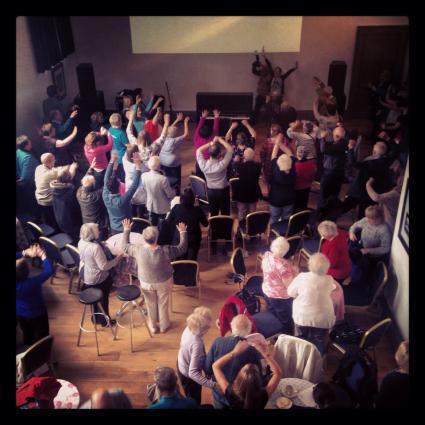
I’d like to think Dr. Simpson remembered me; (all us Carniny kids probably feel the same way; we’d like, most of all, to believe that he was proud of us). I’d like to think he somehow knew that it’s partly his fault that I write and I eat books for breakfast and I sometimes feel like I can climb inside a Bob Dylan song and I have this insatiable urge to make sure other people have art and music, words and wonder too. I’d like to say thank you for all the little seeds of worth he planted in me, for the way he knew that a child complimented and encouraged is a child who will flourish without harsh discipline. I’d like to say thank you for showing me how to teach others with kindness, with joy and with the humility to never give up on my own learning. I’d like to apologise for giving up on my cello lessons. I’d like to tell him we sang ‘She’ll Be Coming Round The Mountain” with our Singing for the Brain group this morning, forty people with Dementia and their carers raising their voices to sing “aye, aye, yippy, hippy, yaye,” and laughing at their own silliness. I’d like to say this was especially for him. I think he’d like that. I think he’d be proud.


February 6, 2016
What We Did Next

I’ve got some exciting news. Actually I’ve got lots of exciting news but most of it has to stay secret for a little while longer. This one I can tell you all about though. Today my good friend Orla McAdam and I had our first meeting about a wee project we’re going to be collaborating on over the next six months. Orla is a fantastic visual artist, (and a brilliant teacher of art), and also a brave woman. She’s taken up the challenge of creating fifteen pieces of new work, each one based on one of the short stories in my forthcoming collection “Children’s Children.”She’s going to do a stellar job of it.

As with all collaborative projects we have absolutely no idea how this will turn out. I’m guessing brilliant if it’s anything like last year’s collaboration with musician Hannah McPhillimy. I’m also expecting most of the truly good stuff to be found in the process of collaboration as much as the finished article. We’re scaring ourselves a little and, despite the fact that no art has been made yet, have already booked exhibition space at Common Grounds in June. We’re going to be launching the exhibition as part of Belfast Book Festival. They’ll be some sort of celebratory, launch type event happening during the Festival. We really hope you can all come. In the mean time please give Orla an encouraging pat on the back/glass of wine/inspiring word every time you see her. That’s her up there in the wooly hat, (the one who’s not me).
Here is a link to a blog I wrote about collaborating with Hannah McPhillimy and becoming extremely stressed
https://jancarsonwrites.wordpress.com/2014/06/11/2459/


January 30, 2016
February Shorts 2016

Here’s a rather disturbing picture of Ernest Hemingway in shorts, (it’s surprising how many disturbing images of Ernest Hemingway in shorts you’ll find if you stumble into the wrong search on Google). I’m not intending to spend much time thinking about Ernest Hemingway’s shorts, both the wearing kind and the written kind. As most of you know I’m not a big fan of Hemingway. I’m only posting this picture to inform you all that it’s February Shorts time again and I’m quite excited.
Every year I take the excuse of February being the shortest month to read nothing but short stories for 28 days, (or 29 on a Leap Year). It’s nice to take a break from reading novels. This year it’s particularly nice to take a break from reading Infinite Jest. (I haven’t actually started reading it yet, but I have moved it from the bookcase downstairs to my bedside table and even that took a full month of concentrated effort).
I love the short story and many of my favourite writers are incredibly strong in this format. My list of books to devour this February include Lorrie Moore, Christine Dwyer-Hickey, George Saunders, James Salter, Elizabeth Taylor and Chimamanda Ngozi Adichie. I can’t wait to get started. Does anyone else fancy joining me for 29 days of short story reading?


January 24, 2016
The End of a Marvellous Era

Friday was my last official day working at the Ulster Hall and today my heart is a little bit sad.
I’ll still be popping in and out of the building for the next few months, finishing up projects and running those events which are scheduled into the calendar, but I‘ve already begun my transition into another department within the Council and am actually pretty excited to get involved in new projects and be part of a new team. Many of you know that the decision to leave the Ulster Hall wasn’t exactly my choice. I was in the extremely fortunate position of having my ideal job and I’d hoped it might have lasted a little longer. It’s been a pretty tough six months journeying through the implications of this transition and this isn’t the proper forum for discussing the details.
However, the last five and a half years at the Ulster Hall have been some of the best years of my life and I do believe that it’s entirely appropriate to stop and celebrate that which is coming to an end before you begin a new chapter. So, here’s what I’d like to say to the building which has become a kind of second, (or sometimes first), home to me. I’ve heard that once you’re an Ulster Hall person, you’re an Ulster Hall person for life. I can’t think of any better reassurance right now.
Dear Ulster Hall,
There are things they did not tell me in the job interview, such as the very particular kind of force required to open the door closest to Donegal Square, and the way the area around security would come to smell a little like German sausage; the various bits of you which are held together with duct tape and the importance of avoiding the angry pigeons defending your recycling bins. Neither did they foresee the day a man would come in from the cold clutching a giant letter L so, for almost a week, the sign above your door would read ULSTER HAL and we would not love you any less for it. They did not warn me that the Carpenters, and other contemporary hits, should not be played on your pipe organ for fear of offending its delicate Bach-loving sensibilities. Nor did they tell me that the rain would come in and your lift would sometimes stick and the upright piano would dull on every third note but, even then, a room full of old and wonderful people could still raise their voices against the tune and make magic go swirling round your ceilings every Monday morning. At the time they did not think to tell me that the name for all this was “bocketty,” or that I would soon come to learn that “bocketty” was not a thing to kick against but rather something to keep us always leaning on each other.
Which is to say there’s been a lot of people worth leaning upon. All the people who came in and out of your doors: singing and dancing and making weird crap out of polystyrene cups, carpeting your floors with babies and glitter, spilt beer, chocolate buttons and slow-shuffling Zimmer frames. All the people who were just names and then became faces, then conversations and projects, and finally a kind of roughly hewn community of very generous, leaning people. So many, many people smiling me, storying me, occasionally crying me, pinning me up against the wall when the tea ran out, thanking me, kinding me, pushing me forwards, holding me together after fourteen hours in heels, coming back the next day to say ‘thank you’ and’ can we have some more please?’ until it was all but obvious that this was the right place to be and the right thing to be doing. This could not have happened in other sharper buildings with doors which close easily and often. Thank you for teaching me that doors are meant to be open. Thank you for teaching me that everyone is meant to come inside. These are the kind of learnings worth carrying into the next chapter.
Also I have thanks for your people, the saints who actually live here, too many to name names, though their faces come instantly to mind and stick. Brave and funny people, (mostly dressed in black, though not exclusively), who can run for fifteen hours on a single cup of coffee and still be smiling when the gig gets out. These people are jugglers of tickets and radios, dressing rooms and accessible seats, VIPs and people who are actually important. They remember birthdays and hospital appointments and which day the canteen does curly fries. They can turn a simple discussion about seat kills into the Gettysburg Address and understand that the empire will float or possibly drown on the back of a well-stocked stationary cupboard. They are first in, last out, close the door behind them people. They laugh a lot. They cry frequently. They also drink. They appreciate the importance of a well-placed power ballad. They have taught me everything I could possibly need to know about teams. They are family now. They would take a bullet for you or anyone who calls you home. You should hold on to them for as long as you can. They’re such good people.
Mostly I am thankful to have been here. I am six short years now in a story which is over one hundred and fifty years rich. What a memory you must have: Joyce and Dickens, Cash and Costello, hundreds of thousand of Belfast souls who’ve tramped your boards and drunk at your bars and turned their ears towards your stage, disappearing into the music. Six years seems hardly long enough to leave even the tiniest mark on your dance floor and think of all those dancing years to come. I won’t be leaving anything behind. I’m far too selfish for that. Instead, I’m leaving marked by everything you’ve taught me. I am an older person than I was six years ago, a humbler person and yet more driven, a person shot through with so many stories and hungry for more, a person who cannot believe her own good luck. I am a person who can now see the potential in a wide open door. I have you to thank for all of this. Ulster Hall for life.


January 14, 2016
One Hundred Books for Tara
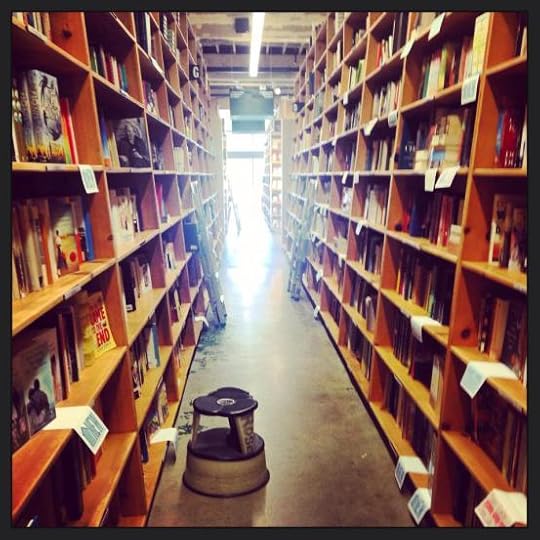
Last year some of my friends gave me an essential list of poetry collections I really needed to read. As someone who rarely touches poetry it was a bit of a challenge, but I made it through all the recommendations and actually discovered I have a (limited), appetite for poetry.
This year my friend Tara, who hasn’t read much else but poetry for the last few years, asked me for some prose recommendations. I started off trying to make a list of 10 books. This was impossible. There are too many great books in the world. I ended up with this -completely off the top of my head- list of one hundred books which I wish I hadn’t already read so I could have the pleasure of discovering them for the very first time.
Most are desperately obvious. Some are wild cards and some are books which have been important to me in the past and aren’t my go to books any more. Some are absolutely amazing books. As I said, in no particular order, these are the first 100 books which come to my mind. I hope Tara enjoys some of them.
Gunter Grasse “The Tin Drum”
Salman Rushdie “Midnight’s Children”
Marilynne Robinson “Housekeeping”
Vladimir Nabakov “Pale Fire”
Colum McCann “Let The Great World Spin”
Flannery O’Connor “A Good Man is Hard to Find”
Nicole Krauss “The History of Love”
Jonathan Safran Foer “Everything is Illuminated”
Bram Stoker “Dracula”
Emily Bronte “Wuthering Heights”
Claire Keegan “Antarctic”
George Saunders “Civilwarland in Bad Decline”
Nancy Mitford “Love in a Cold Climate”
John Steinbeck “East of Eden”
Karen Russell “St Lucy’s Home for Girls Raised by Wolves”
Kevin Barry “There Are Little Kingdoms”
Philip Roth “American Pastoral”
Etgar Keret “The Bus Driver Who Wanted to be God”
Thomas Hardy “The Woodlanders”
Aimee Bender “Wilful Creatures”
John Ajvide Lindqvist “Let the Right One In”
Ernest Hemingway “The Old Man and the Sea”
Richard Brautigan “The Abortion”
Paul Auster “The New York Trilogy”
John Updike “Rabbit Series”
Barbara Kingsolver “The Poisonwood Bible”
Neil Gaiman “American Gods”
Jenny Offil “The Department of Speculation”
William Faulkner “The Sound and the Fury”
Elizabeth Taylor “The Blush”
Michael Chabon “Wonderboys”
Jonathan Leathem “The Fortress of Solitude”
Eimear McBride “A Girl is a Half-Formed Thing”
Tobias Wolff “This Boy’s Life”
Haruki Murakami “The Wind-Up Bird Chronicles”
Carson McCullers “The Heart is a Lonely Hunter”
Lauren Van Den Berg “The Isle of Youth”
Colm Toibin “Blackwater Lightship”
Douglas Coupland “Life After God”
Patrick Suskind “Perfume”
John Irving “A Prayer for Owen Meany”
John McGahern “That They May Face the Rising Sun”
Truman Capote “In Cold Blood”
Margaret Atwood “The Handmaid’s Tale”
Andrew Millar “Pure”
Virginia Woolf “A Room of Her Own”
Kazuo Ishiguro “The Remains of the Day”
Naomi Alderman “Disobedience”
Jonathan Franzen “The Corrections”
Graham Greene “The End of the Affair”
Iain Banks “The Wasp Factory”
Don Delillo “White Noise”
Jeffrey Eugenides “Middlesex”
James Ellroy “LA Confidential”
Ali Smith “How to be Both”
Matthew Thomas “We Are Not Ourselves”
Agota Kristof “The Notebook”
Glenn Patterson “The International”
Hilary Mantel “The Assassination of Margaret Thatcher”
Gabriel Garcia Marquez “One Hundred Years of Solitude”
Kazuo Ishiguro “The Remains of the Day”
Ian McEwan “On Chesil Beach”
Samantha Harvey “Wilderness”
Janet McNeill “The Maiden Dinosaur”
Donna Tartt “The Secret History”
Ben Lerner “10:04”
Bernie McGill “The Butterfly Cabinet”
Francois Sagan “Bonjour Tristesse”
Junot Diaz “Drown”
Angela Carter “Wise Children”
Agatha Christie “The Mirror Cracked From Side to Side”
Alice Munro “Collected Short Stories”
Edna O’Brien “The Country Girls”
Carys Davies “The Redemption of Galen Pike”
Brian Moore “The Lonely Passion of Judith Hearne”
Jhumpa Lahiri “The Interpreter of Maladies”
David Park “The Truth Commissioner”
Christopher Isherwood “A Single Man”
Donal Ryan “The Thing About December”
William Trevor “Felicia’s Journey”
Michael Cunningham “The Hours”
Max Porter “Grief is the Thing With Feathers”
Cormac McCarthy “The Road”
Roddy Doyle “Paddy Clarke Ha Ha Ha”
T.C. Boyle “Drop City”
Nick Cave “And the Ass Saw the Angel”
Emma Donghue “Room”
Robert McLiam Wilson “Eureka Street”
Yann Martel “Self”
Michael Ondaatje “The English Patient”
Patrick deWitt “The Sisters Brothers”
James Lasdun “It’s Beginning to Hurt”
Italo Cavino “If on a Winter’s Night a Traveller”
Raymond Carver “What We Talk About When We Talk About Love”
Jeanette Winterson “Oranges are not the Only Fruit”
Lorrie Moore “Anagrams”
Patrick McCabe “The Butcher Boy”
Joseph O’Connor “Star of the Sea”
Carys Bray “A Song for Issy Bradley”
Chaim Potok “My Name is Asher Lev”


January 3, 2016
Ten Things I Learned From Postcard Stories
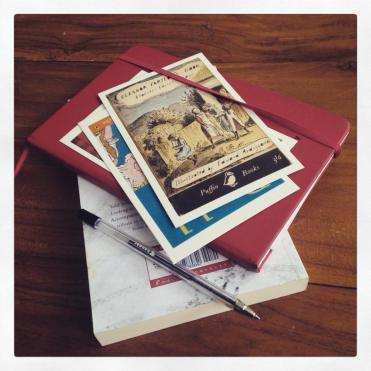
At the beginning of 2015 I started a new writing project. I decided that every day for the next 365 days I would write a short story on the back of a postcard. Each story would be inspired by the day’s events and posted to a friend, (mostly local, some as far away as Vietnam and South Africa). Every recipient would be someone I actually knew and, with the exception of a strange man Hannah McPhillimy met on a flight from Portland, I managed to keep to this rule. I didn’t miss a single day, though some stories were undoubtedly ropier than others. I only repeated myself twice and I actually ended up developing some of the ideas into longer short stories. I’m hoping to find somewhere which will publish a selection of the best Postcard Stories at some stage in the future.
It was a great year and a great way to keep myself writing, but I’m quite glad it’s over now, glad to get an extra half hour back in my day. Here’s a quick rundown of some of the things I learned during my year of writing Postcard Stories.
The old-fashioned letter isn’t dead– I couldn’t believe how many people really appreciated receiving something in the post which wasn’t a bill. Even though Postcard Stories are over I’m going to make more of an effort to send actual letters from now on.
Swapping art is amazing– I received so many lovely postcards, pieces of art and illustrations, photos and all sorts of treats in the mail from grateful recipients. We should do more swapping of art. It doesn’t cost much if anything, and it keeps us all connected.
I have more ideas than I thought– I didn’t think I’d be able to come up with 365 different stories but after a few days of writing these I found that I’d trained myself into looking for inspiration everywhere I went. This project taught me the discipline of observation: listening to what people say, watching what they do, looking out for the odd and remarkable, the kind of things which form the foundations of a story.
I can write really small– one person said that my tiny handwriting looked like rain on a windowpane, (this was nice), another person said it gave them a migraine and required a magnifying glass to read, (this was not so nice).
I can fit 250 words on a single postcard– If there is every another World War and I have to send letters to a lover at the Front this will be a very useful skill.
The Royal Mail is not very reliable– At least a third of the Postcard Stories never arrived, despite spending over £250 in stamps this year. There are also some post boxes which are much more likely to make your letters disappear than others. If you’re thinking of posting anything in the postbox outside the pizza place on the Holywood Road you’d be just as well posting it straight into your wheelie bin.
Every day projects sit well with me– I write a lot but I still don’t find it easy to sit down and start writing. I’m a terrible perfectionist and tend to procrastinate if I can’t find the exact words to start a piece. The sheer volume of work required to complete an every day writing project like this forced me to get over my hang ups and get something down on paper every day. I’ve already started to notice how this is helping me to get down to my writing sessions quicker.
I’m not as computer-centric as I thought I was– I’ve never been a pen and paper writer. I love the flexibility of writing on a lap top and self-editing as I go, but for the Postcard Stories I used a series of notebooks to jot down ideas and develop each piece, only typing the stories up once the final version had been written on the back of a postcard. I actually enjoyed the experience of rediscovering my own handwriting and the flexibility of being able to jot down quick notes everywhere I went.
It’s best to warn people before sending them art in the post– Apologies to Roisin’s Grandma who accidentally read her Postcard Story about a girl with three dozen hands and was mightily confused.
It’s pretty obvious where my interests lie– If you removed all the Postcard Stories about Bob Dylan, Agatha Christie, the Ulster Hall, Flannery O’Connor, Casualty and Inspector Morse there’d probably only be about three stories left. I know my strengths and I stick to them.


January 2, 2016
Postcard Stories 2015: Week Fifty Two
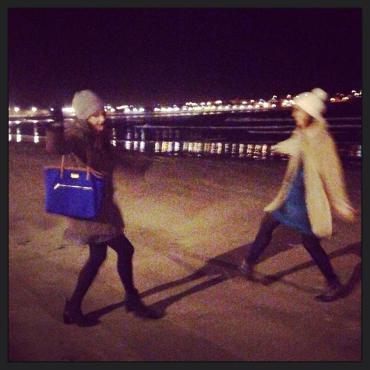
December 24th 2015 – Ballymena
Reuben and Glenda McCormick
It is a little know fact, long established, that the same wish said, or indeed sung, audibly ten millions times will bring the very thing spoken immediately into being. (This principle is similar to the much better known ‘Genie and three wishes’ principle, only without a lamp).
Unbeknown to any mortal creature, the phrase, “I wish it could be Christmas every day,” was uttered for the ten millionth time on Christmas Eve of this year. Though the perpetrator’s identity has little bearing on the outcome, you might be interested to know that the culprit was a slightly drunken Uncle from Banbridge. He was wearing a cracker hat at the time.
Thereafter, it was Christmas Day, everyday for the rest of time. People soon tired of turkey and there were only so many times the Father Ted Christmas special could be watched before the jokes grew somewhat predictable. Everyone was thoroughly sick of giving and receiving presents. They began to mutter, “I wish it wouldn’t be Christmas everyday,” but it would take years, decades even, to clock up ten million repetitions.
December 25th 2015 – Ballymena
Margaret and Dianne Lowry
On Christmas morning when we sat down beside the tree to open our gifts there was the usual stack of chocolates and fancy candles for Mum, slippers for Dad, (and two of those crime novels by the Scottish writer he particularly enjoys), plastic, shiny things for the kids: dolls and doll parts, lazer guns, robots, cars; every item requiring batteries so we had to sacrifice the television remote and the kitchen clock for fuel.
I received the same pair of striped socks six times from six different relatives. I should have guessed from the shape of my gifts, but even after four identical pairs, I was still hopeful for gloves or a well-folded T-shirt.
At first it was a joke. “No excuse for smelly feet now,” after the third pair.” Then, after the fourth, a kind of muted apology, “sorry Love, we should have coordinated a bit better.” After the sixth and final pair had been revealed I mumbled something incoherent about presents not being the true meaning of Christmas. This was not a lie exactly, but at that moment, in the midst of all those socks, it felt just like one.
December 26th 2015 – Ballymena
Stephen Carter
In our house it is traditional to make a sandwich from all the Christmas Day leftovers and to eat this sandwich for lunch on Boxing Day. I prefer sandwiches made with processed, white bread and had purchased a fresh loaf on Christmas Eve for this explicit purpose.
I began with meat: turkey, ham, three cocktail sausages lined next to each other like little, naked babies in a bed; a layer of stuffing, cranberry sauce, roast potatoes and mash, a slathering of gravy to ease the sandwich’s passage down my gullet, four round bullets of brussel sprouts, halved to avoid slippage, carrots and parsnips in Balsamic, honey glaze.
I took a long, low sniff of my sandwich but it wasn’t quite complete. There were other Christmas leftovers which I began to pile on top: a generous dollop of pudding, custard, red wine, port and brandy, half a box of Celebrations, (minus the miniature Bounties), two unread paperbacks, torn wrapping paper, a once-worn cracker hat, gift receipts and a sweater which did not fit, after dinner naps and a Morecambe and Wise repeat.
Once complete I couldn’t get the slice of bread to settle on the roof of my sandwich. I couldn’t possibly get my mouth around it. The very sight of it turned my stomach and I understood why we only tolerate Christmas once a year.
December 27th 2015 – Dunadry
Janice Kernaghan
It wasn’t as if we were being deliberately cruel. The dog had already eaten the Christmas tree lights by the time we noticed and there was nothing we could do about it. The dog was closed over the holiday weekend and the dog didn’t seem that bothered about the string of light bulbs emerging from his mouth. He was not a particularly smart dog and had previously eaten a pair of washing up gloves, a tennis balls, some ankle socks and the special, Christmas edition of the Radio Times.
Of course we tried to pull the fairy lights out but they were stuck fast, looped around the dog’s intestines and he’d clamped his teeth over the plug end of the string as if determined to eat them right down to the last mouthful.
“What would happen if we plugged the lights in?” asked Mum, and my youngest sister replied, “we’ll be able to see the dog’s skeleton, like a kind of x-ray.”
My dad plugged the dog in and his mouth glowed a little like an underwater disco. The rest of him was just like an ordinary dog but we could tell he was really pleased to be the centre of attention. As I said, we were not being deliberately cruel.
December 28th 2015 – Castlereagh Road, East Belfast
Connor Copeland
The child was almost two and a half and had not yet made any attempt to speak though all his other skills- walking, eating, dancing along to disco beats- had developed at exactly the right pace and so the pediatrician said there was nothing to worry about.
“Try him on animal noises,” she suggested, “and children’s songs. Chances are he’ll begin to sing along.”
The child did not begin to sing along and when we waved plastic chickens and cows under his nose, quacking and mooing like demented farmhands, he simply looked at us witheringly, glaring all the way down his tiny, button nose as if such antics were beneath him.
By the time he turned three and still hadn’t uttered a single word we’d begun to panic in earnest. “He’s not normal,” we whispered down the phone to friends with children of a similar age. We tried exposing him to Toy Story, Peppa Pig and all the various incarnations of the Gruffalo, and still he would not speak.
It was only on the eve of his fourth Christmas, whilst listening to a Radio 4 adaptation of Dickens, that the child finally piped up from the back seat. “At last,” he said, “something on my level,” and was speaking fluent Latin by the year’s end.
December 29th 2015 – Sydenham Drive, East Belfast
Sharyn Ruseckas
This morning I decided to clean the house. It was greatly needed. I began with hovering. I started at the top of the house and made my way, stair by stair downwards, from the third floor, to the second, to the ground floor. There was something rather satisfying about the tiny clicks and shudders of grit and little pieces of debris thundering up the hoover’s hose.
When I arrived at the front door with a dust-free house behind me, and the entire day ahead, I decided to keep right on hovering. East Belfast was far from spotless and as I progressed down the Holywood Road, sucking twigs and crisp bags and individual leaves into my hoover I couldn’t help but picture myself on the front page of The Telegraph, solely responsible for cleaning up the East.
I was just wondering whether the West might also benefit from a quick run over with the Dirt Devil, when the extension cord ran out. There was still so much cleaning left to do and I was not the sort of girl who accepted limitations. I would come back next week with a cordless hoover, a fancy Dyson ideally.
December 30th 2015 – Belmont Road, East Belfast
Joy Eakin
When we bought the house we understood that it was not perfect: the kitchen needed replaced, the living room wallpaper was hideous and there was a large stain, like a week old bruise, blushing across the wall of the spare bedroom. It wasn’t damp. You checked. It was just an ordinary stain.
“Wee lick of emulsion and that’ll be grand,” you said, and I believed you.
We put a new kitchen in immediately, wallpapered the living room and started into the spare bedroom with a bucket of magnolia paint. There little point in paying a decorator. It was a rectangle of a room with one small window; the sort of job we could easily manage between us.
On went the first layer of magnolia and the stain seeped through. On went the second and third. The room was brilliantly, brightly clean, save for the tea-coloured stain on the North wall. On went a fourth and fifth coast and when the stain was still visible we had our first argument in the new house.
“Cheap paint,” I said.
“Poor painting technique,” you fired back.
“The problems associated with buying an old house,” I said.
You had nothing to argue back with and the stain actually appeared to have grown larger. I knew then that it would spread to other rooms and eventually take over the house.
December 31st 2015 – Portrush
Maggie Cronin
When the New Year dropped we were on the West Strand; the four of us in high heels with a single glass of red wine, stolen from a moderately priced restaurant. It was bitterly cold. We were wearing sensible coats over our dressed, and winter hats with bobbles which nodded along like second assenting heads, every time we moved.
“We should dance,” you said, and this seemed like the very best way to keep warm. (Several of us had forgotten our gloves). So, we dance to tunes on your mobile, the sound cutting in and out as the phone in your pocket waivered towards us and shied away. Afterwards we raised a glass to the old year and left it, empty, on the steps of a stranger’s house.
The next morning we returned to the beach. The glass was gone and it was still cold enough for dancing but there were other people walking dogs and children across the sand now. So we stuck our hands in our pockets and did our best to keep warm the ordinary way.
“Here’s the place where last night’s footprints should be,” you said, but the tide had already eaten them and it was like a New Year or some such unsullied thing.


December 30, 2015
Best Reads of 2015
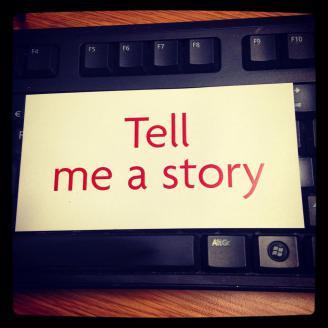
What a good year for reading 2015 was. I discovered poetry and, (possibly because poetry collections are so much shorter than novels), managed to make it through 156 books in the year. This might also have something to do with the fact that I wasn’t reading “The Goldfinch” this year and consequently losing about eight weeks’ worth of perfectly good reading time.
I’ve struggled to narrow my best of list down to ten. Instead I’ve gone for one favourite read of the year and fifteen other notably brilliant books in no particular order. Who knows when these books were published. I tend to read whatever Oxfam books has for less than four quid so this is by no means a definitive guide to the best books published in 2015, (most likely I’ll get round to read and rating them sometime in 2017). I hope you get some ideas from this list. I’d thoroughly recommend all these books and, as you all know by now, am more than happy to talk about good books with anyone who needs a recommendation. Let’s all read even more in 2016.
Top Book of the Year
Flannery O’Connor – “The Art of Being; Letters of Flannery O’Connor.”
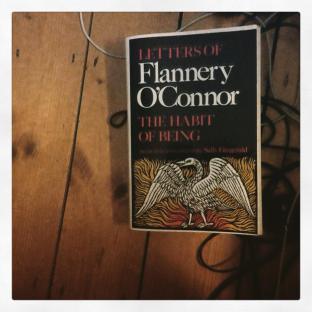
Faith, writing, suffering and peacocks, everything you need to make your way graciously and wisely through life is included somewhere in these 700 pages, plus a generous dose of Ms O’Connor’s cunning Southern wit. If your serious about being a person you need to read this.
1.Kevin Barry – “Beatlebone”
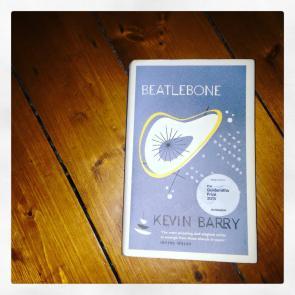
Here’s John Lennon traipsing round the West Coast of Ireland looking for an island to scream on. Never was there a better premise for a book. It’s hilarious and a little bit terrifying and what Kevin Barry does with words shouldn’t work and yet never fails to hit the mark. The man’s a bloody genius and he’s far too nice to dislike.
2. Anne Carson – “Glass, God and Irony.”
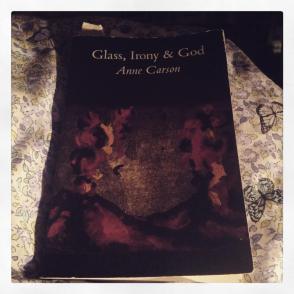
This year I read poetry and mostly hated everything I read, except Anne Carson who I now love like she is my actual mother. This one made me cry big, salty tears in bed and reminded me why I love putting words together and why I should never to settle for the obvious sentiments. The woman’s the most genius of all us Carsons. (Be careful to buy the American version or you’ll not get Irony, only Glass and God, and let’s be honest, the three really need to be served up together).
3. Jenny Offil – “The Department of Speculation”
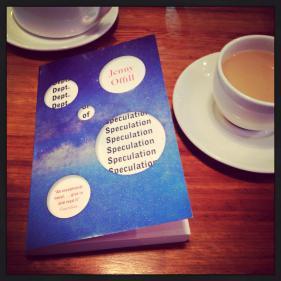
Is it poetry? Is it prose? Is it some strange hybrid, (proety)? Who cares. It’s marvellous. Never has a relationship coming together and falling apart and coming together again been chronicled with such searing honesty. This sort of writing which makes other writers jealous and able to recognise themselves between the lines. I pretty much underlined every other sentence.
4. Agota Kristof – “The Notebook”
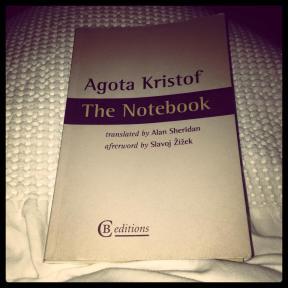
Not to be confused with the Ryan Gosling “Notebook” this is just about the strangest and most disturbing book I chance upon this year. I don’t think I’ve read anything like this before. I’m not even sure how to describe it. It’s worth reading as an experiment in character development alone, but it’s so much more than this. It’s the sort of book which stays with you like a good/bad taste in your mouth.
5. Ali Smith – “How to be Both”
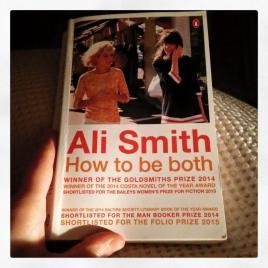
I’m ashamed to say I’d not read any Ali Smith before 2015. Now I am a definite convert and am progressing quickly through her back catalogue. This is the book which hooked me. It’s sharp and insightful and so very, very 2015 for a book that’s fifty percent set in the distant past.
6. Lauren Van Den Berg – “The Isle of Youth”
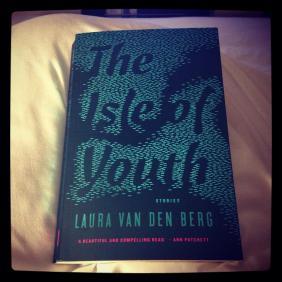
This author was another new discover in 2015 and it was a real treat to be able to hear her read a new story at the London Short Story Festival in June. These are fabulous short stories in this collection. They’re well told and slightly quirky in that Karen Russell/Aimee Bendery way I am consistently drawn to. The novel’s great too and I’m sure there’s way more to come from Lauren Van Den Berg in the next few years.
7. Donal Ryan – “The Thing About December”

I have to say I actually enjoyed this novel more than “The Spinning Heart” despite everything the critics said. Johnsey Cunliffe is one of the most flawed yet endearingly likeable characters I’ve come across in the last few years. It didn’t surprise me at all to hear that Donal Ryan has a special place in his heart for him. You can always tell when a writer really loves a character, they’re just so well-written.
8. Matthew Thomas – “We Are Not Ourselves”
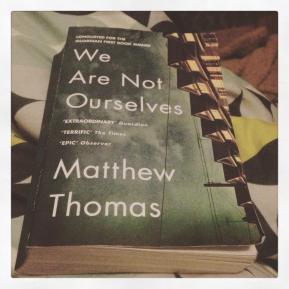
I’ve read a lot of Dementia literature, both poetry and prose, in the last year and this very comprehensive novel following a couple from birth right through to the husband’s death of symptoms related to Dementia is by far the best. It is heartbreaking, unflinching and full of the kind of honest writing people living with Dementia deserve. This is not a sentimental novel but it has a core of respect and genuine love of humanity running right through it, like Updike at his best.
9. Anne Berest – “Sagan, Paris, 1954.”
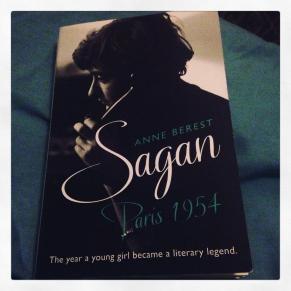
This purports to be a non-fiction book about the life of the French novelist, Francois Sagan, during the year her first book, “Bonjour Tristesse,” was published. Don’t be fooled. It’s actually a remarkably astute meditation on writing and the writer’s motivation. If you’ve any notion of writing yourself you’d be well-advised to read it.
10. Carys Davies – “The Redemption of Galen Pike”
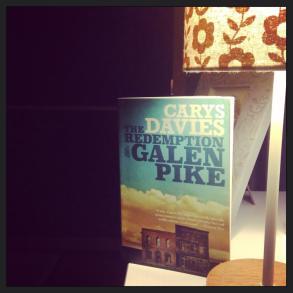
I wish I could write short stories this good. They’re short. They’re punchy. They’re like the bastard children of Flannery O’Connor and Karen Russell, or someone else who’s edgy, contemporary and blessed with a blindingly sharp imagination. How could this not be something you’d want to read? I’ve already given away four copies of this book and I don’t buy people books for presents unless I’m one hundred percent certain they’ll really enjoy them. You need to go out and buy this now.
11. Max Porter – “Grief is the Thing With Feathers.”
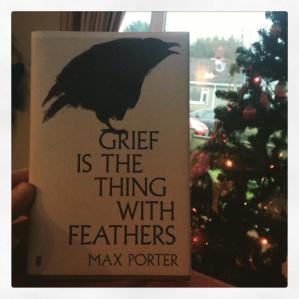
Late to the party here, it almost didn’t make it into the 2015 list but this one’s an absolute blinder. Writing about grief is a difficult thing to pull off without dipping into sentimentality but this walks that fine line with incredible ease. The narrative spins between a father who’s recently lost his wife, his sons and the Ted Hughes-inspred crow who haunts the house during the first months of their mourning. The crow keeps things caustic. The father keeps things honest and the boys remind us that the world is not for ending just yet. The language is like thinking pinned down.
12. Marilynne Robinson – “Lila”
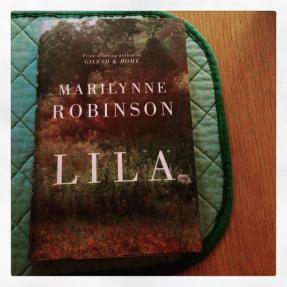
A new Marilynne Robinson is a thing to be saved and savoured so I kept “Lila” from Christmas all the way through to October, when I devoured it in the sun, sitting on the edge of a Fermanagh lake. I don’t need to tell you that this is flawless, that the characters are almost Biblical in their scope, and that the writing is graceful and lingers long after the final page. Everything Marilynne Robinson touches is a kind of miracle.
13. Alain de Botton – “How to Think More About Sex.”
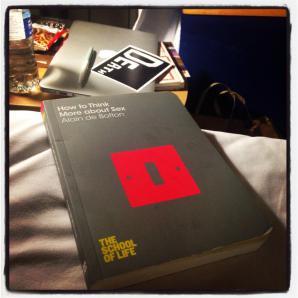
I love Alain de Botton and this is a particularly good example of his writing. It’s not so much about sex as the way the sexes interact with each other and the psychology behind their actions. This is the sort of book best read in a group and discussed at length with wine and much vehemence.
14. Christian Wiman – “My Bright Abyss; Meditations of a Modern Believer.”
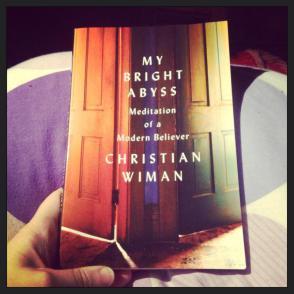
Sometimes books arrive in your hand at just the right moment and they kind of save your life. This is just such a book. Christian Wiman is a decent poet and a marvellously honest and compelling human being. He talks at length here about writing, faith and suffering. He knows what he’s talking about on all three accounts. This is the sort of book which feels like the writer has read the inside of your head and managed to make sense of it all. I think I’ll probably read it again many, many times in the future.
15. Ben Lerner – “Leaving the Atocha Station.”
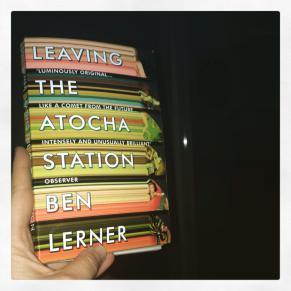
We’re in slightly self-indulgent Dave Eggers territory here; male, white American of a certain age writing thinly-veiled fiction about his own life. It could be terrible. It’s actually impossible to put down. I read this in one sitting and thoroughly enjoyed his second novel too. Going to be keeping an eye on Ben Lerner from now on. I hope he grows out of writing about himself though.


December 27, 2015
Film 2015 (The Best and Worst)
2015 has been a pretty decent year for films. It peaked early with Whiplash and Birdman, slumped a little during the summer, (when the blockbusters dominate the cinema), and picked up its heels towards the close of the year with some great movies set for early release in 2016. I managed to watch seventy nine movies in 2015, the majority of which were new releases. Thanks to the QFT for continuing to indulge my film obsession in 2015 and a special big thanks for hosting movies through the BFI Love season. It was an amazing opportunity to see some of my favourite classic movies on the big screen for the first time. If you live in Belfast, enjoy films and aren’t yet a QFT member you should stop being an eejit/waiting for a deal to come up on Groupon and go straight down there when it reopens to spend your Christmas money on a membership card.
I’m going to list my top ten movies of the year below, with the short reviews I posted online when they came out. The first one is my favourite movie of the year. The others aren’t in any particular order. Notably absent and almost making the cut were the Shaun the Sheep Movie, White Gods and 45 Years, all of which I absolutely loved but I had to drop the line somewhere.
Top Ten Movies of 2015:
The Lobster
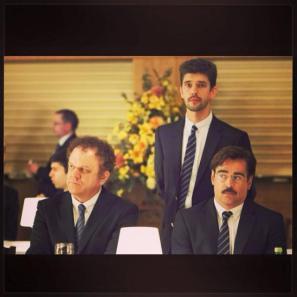
This is the movie I am making inside my head. It is a glorious thing.
2. Whiplash
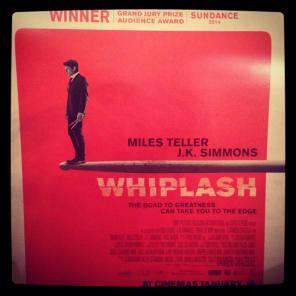
Still recovering from this, (in a good way). One of the strongest pieces of film I’ve seen in a very long time.
3. A Most Violent Year
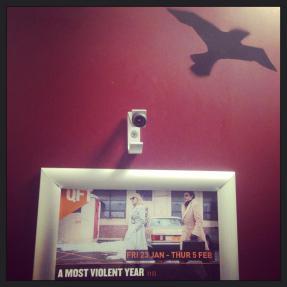
Have never felt more compelled to rush out and buy a 1980s cut, ankle length, camel hair coat. Classy classy stuff from Oscar Isaac and Jessica Chastain.
4. Wild Tales
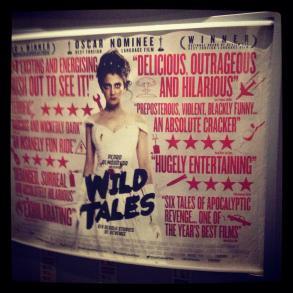
Oh my, this is truly wonderful. Strangely reminded me of Roald Dahl’s dark stories. Do yourself a favour, take two hours out of your weekend and go see this.
5. Alive Inside
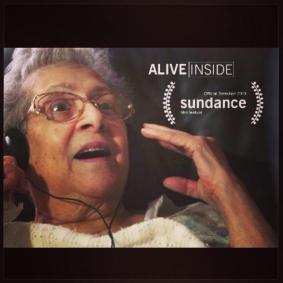
If further proof was needed that older people both need and deserve the arts then here it is.
6. Listen Up Phillip
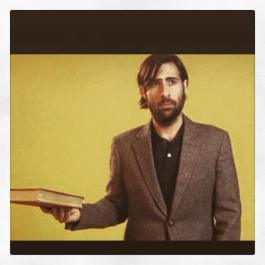
Posing with book props, pretending you don’t want to be at book launches, only talking to people who’ll advance your literary career; it’s like they took our lives and made them into a movie and we all wore tweed blazers throughout.
7. Love and Mercy

I love Brian Wilson. I love John Cusack. I love Paul Dano. Nothing wrong here.
8. Marshland
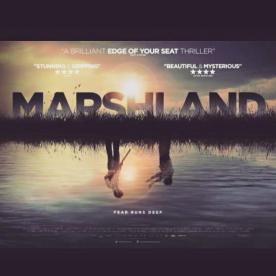
This is ridiculously good. Shotguns, Spain, 1980; almost flawless.
9. Mistress America
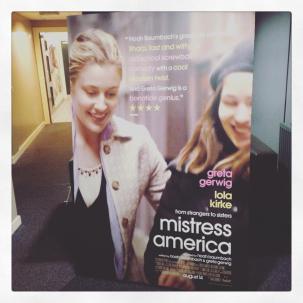
Gerwig, Baumbach thank you. Thank you so much.
10. Room
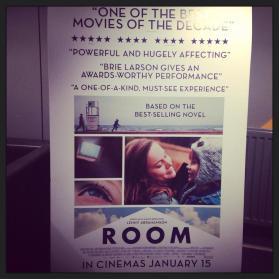
Rarely do brilliant books turn into brilliant movies but this one’s the exception. Cried my eyes out and left the cinema exhausted and full of hope. Great stuff.
And now the clunkers. I have to say 2015 also had its fair share of disappointing cinema trips. The new James Bond was dreadful, Brooklyn and Suffragette played it safe to the point of dull and Carol actually made us fall asleep mid-film. I’ve left out the dreadful kids movies, (dogs in space, kidnapping Santa etc), I’ve been subjected to as an Aunty and here are the five most disappointing/anger inducing/ over-hyped movies I sat through this year in no particular order.
Top 5 Worst Movies of 2015:
Bridge of Spies
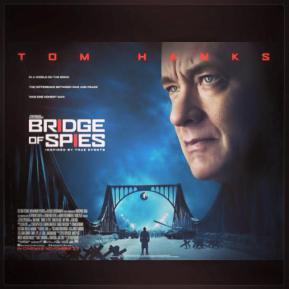
I fail to see how The Guardian can give this five out of five. I fail to see how the Coens could have written this. I fail to see the point of it entirely. It is a spy movie with about as much thrill and pace as an episode of Columbo (and that’s being unfair on Peter Falk). The spies are caricatures of spies. The Russians torture captured American spies whilst Americans let their captured spies paint pictures and sleep in. No one swears. There is no real violence, even the East German street youths mug Tom Hanks in a terribly polite way, reminiscent of a GCSE German oral. It is ghastly and earnest. My worst kind of movie.
2. Inherent Vice

Very stylish. Very dull.
3. Big Eyes

The last half hour of this belongs on an E4 sitcom. I actually can’t remember the last time I liked a Tim Burton movie now.
4. The Legend of Barney Thompson
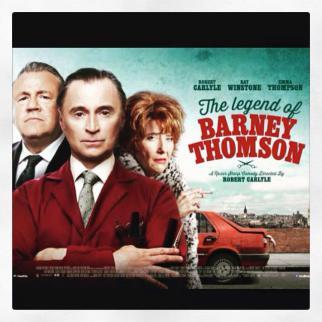
Imagine what would happen if a bunch of undergrad film students decided to remake Shallow Grave in the style of Hot Fuzz and cast it with actors playing cartoon versions of themselves. Even that would be ten times better than this horror.
5. Une Nouvelle Amie
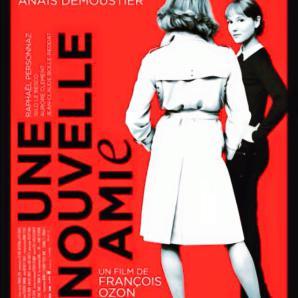
Three strikes and you’re out now Romain Duris.


December 26, 2015
A Year (or Two) With Agatha Christie
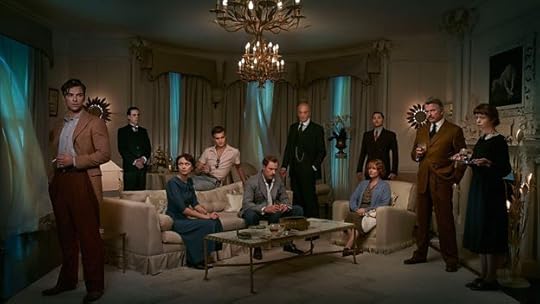
I’ve just finished watching the first episode in a three part BBC adaptation of Agatha Christie’s “And Then There Were None” (it’s the one where all the victims are stuck on an island and have to spend a weekend in a mansion just waiting to meet their fate. It also used to have a not very PC title which no one likes to mention now). Despite my fears, mostly related to the recent BBC adaptation/attempted murder of Christie’s husband and wife sleuths, Tommy and Tuppence, this one wasn’t terrible. In fact, in places, it was actually quite gripping and the cast was exceptional. There were too many drone shots and the pacing was a little off, but it was far from being the hack job I was bracing myself for. I know exactly how the story is going to pan out -I’ve read it at least 3 times in the past- but I still can’t wait for the next two episodes, so I guess the BBC must have done something right.
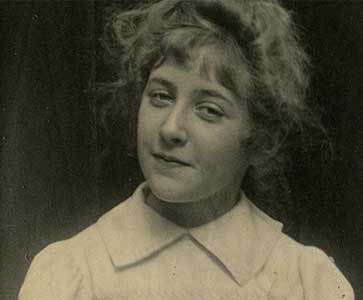
Or perhaps, it would be fairer to say, Agatha Christie did something right. Actually, I think Agatha Christie did an awful lot of things right, over and over again with awe-inspiring consistency. She may not be the most ground-breaking of writers but I honestly can’t think of any writer I’m more fond of , or anyone who has had more influence on my desire to write. Agatha Christie made me fall in love with novels. As a child I devoured her and I don’t think I’ve ever lost this appetite. “And Then There Were None” is one of the first Agatha Christie novels I ever read. I was inappropriately young at the time, (eight I think and much too young for murder and adultery). However, I didn’t need to understand every word to know I enjoyed Agatha Christie’s books. I was almost instantly hooked on the twists and turns of her plots, her signature characters, (particularly Marple and Poirot), and most tellingly, her sense of what George Orwell calls ‘an English murder;’ the idea that justice and logic will always prevail by the end of the story. There’s something terribly reassuring about an Agatha Christie novel. If you can manage to squint past the casual misogyny and furious xenophobia which makes most of her work a little dated, there was a wonderful wholesomeness about the way she wrote and shaped a plot.
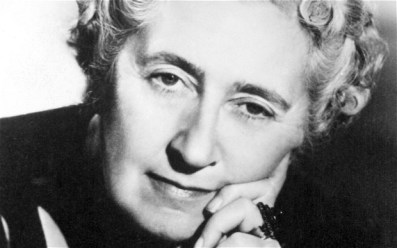
Agatha Christie was above all else, a fantastic observer of human nature. There is much of Miss Marple’s small town busy-body about the way she approaches storytelling, describing her characters flaws and foibles in delicious, painstaking detail, making her readers distrust even the most innocent-seeming vicar or governess. In a writing career spanning seven decades, she consistently told truly engaging stories and managed, even after her death in 1976, to maintain a readership rivalling the Bible and Shakespeare. Her writing output is awe-inspiring, (66 crime novels alone, not counting short stories, plays and a number of romance novels written under a pseudonym). This particularly impressive in light of the life she lived, traveling, exploring and juggling all sorts of interests besides her writing. It isn’t just the novels which draw me to Agatha Christie. It’s Agatha herself who truly fascinates me.
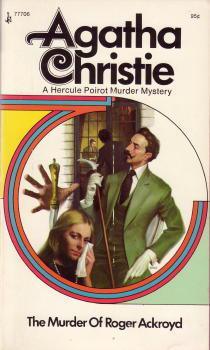
So, I’ve set myself a little challenge. I’m going to attempt to read all 66 of Agatha Christie’s crime novels in order over the coming years. I’ve already managed 6 so far in 2015 and am hoping to make my way through 20 a year for the next 3 years. By this point I estimate I will have been exposed to almost 200 poisonings, stabbings, shootings and other devious murders. I can’t wait. It might be enough to turn me into a crime fiction writer. I might actually make some money off writing for a change.





